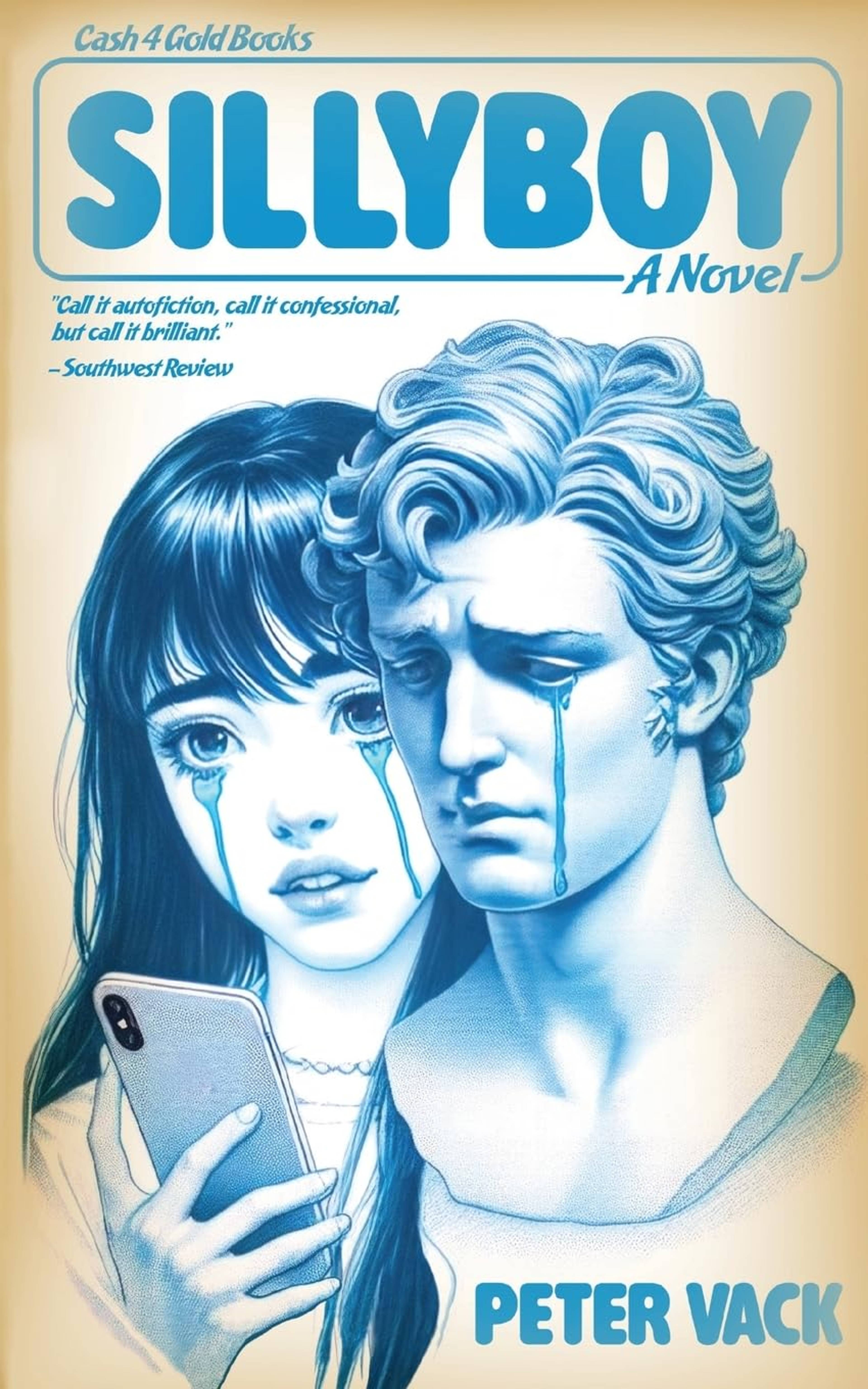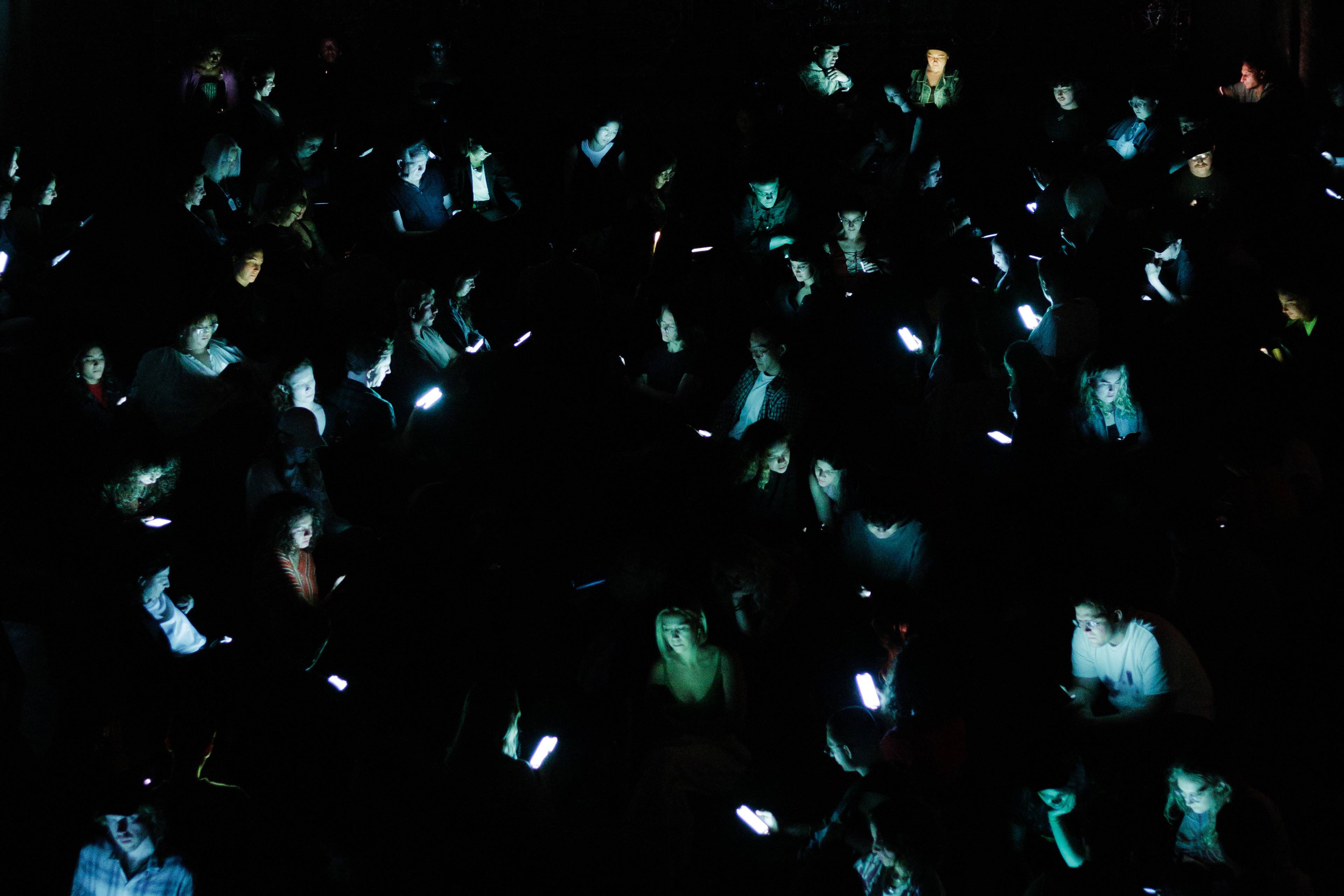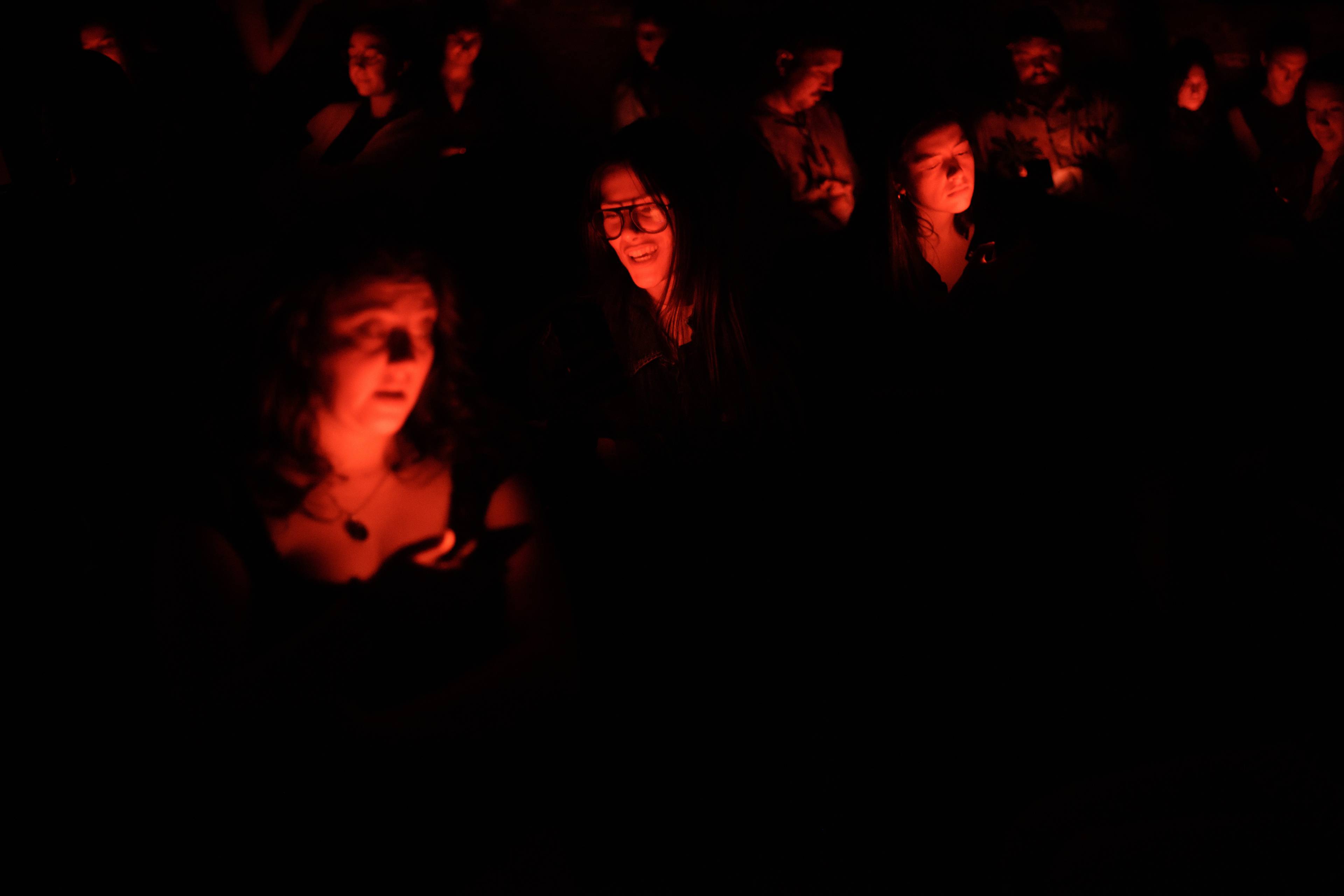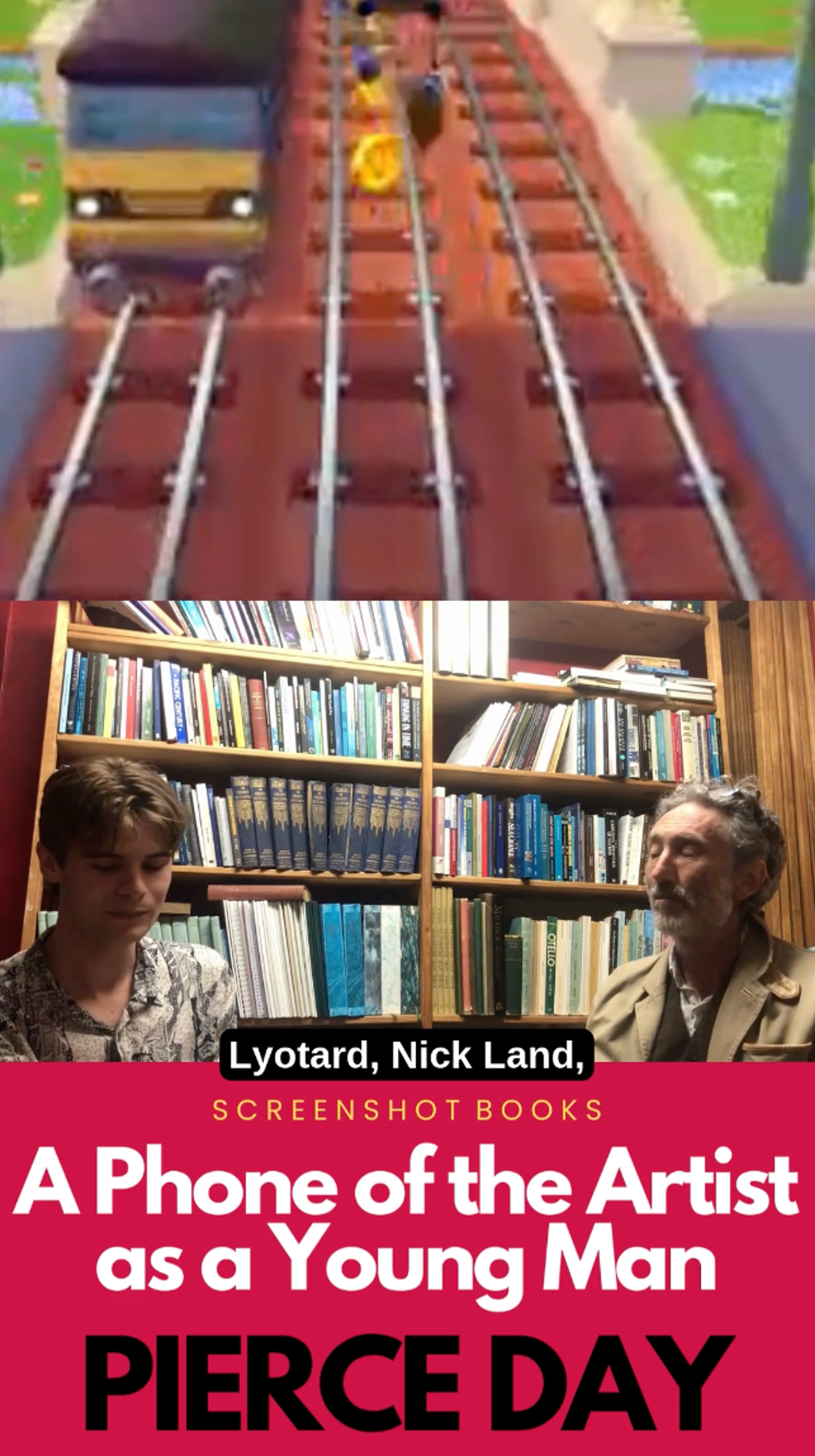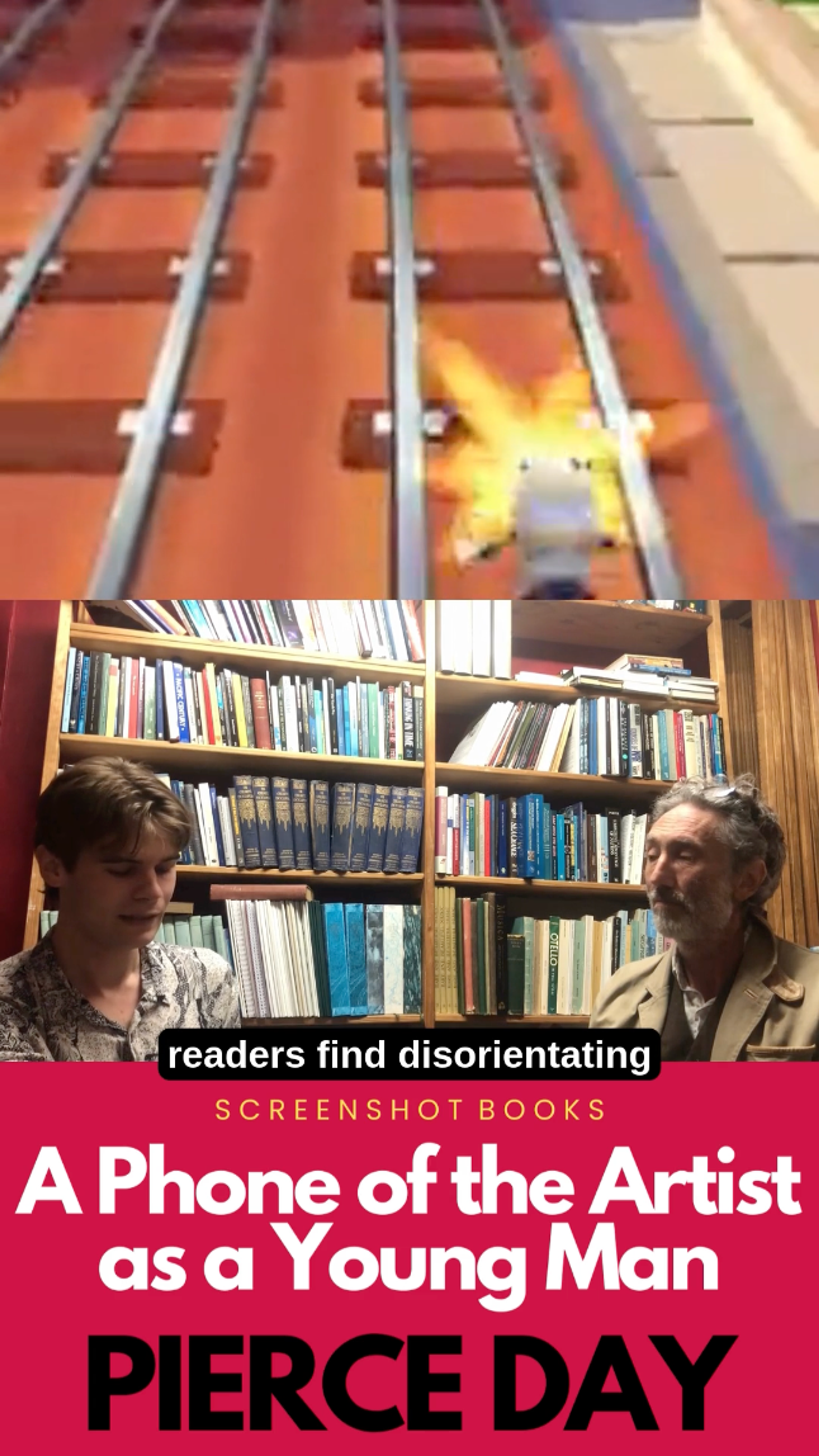“Phones are a terrible medium for performance art,” my friend said, then technologist Mindy Seu directed everyone to whip theirs out. For the next forty-five minutes, a hundred people sat in the dark, faces glowing, following along on Instagram Stories with the lecture-performance A Sexual History of the Internet. Other than the phones, the piece is a fairly conventional tour of key innovations in how we get off online. Two things I learned: The first JPEG was a pirated Playboy centerfold. And there’s a subgenre of BDSM called data domination, where a sex worker takes remote control of your computer. The smartphone, Seu said, is a teledildonic device, a sex toy, relaying stimulation across time and space.
“This will be an exercise in restraint,” the lecture began. “Please do not touch your screen unless told to do so.” That was the idea. In practice, the self-reflexive gimmick quickly became a barrier. This constellation of glowing, jaggedly synchronized devices didn’t transmit satisfaction so much as the gathering desire for technology to work as advertised. Batteries drained and slides froze and the lecture clattered apart to its conclusion, something about surveillance…
But the lecture also comes in print form, a brick of black paper roughly the size of a very thick phone screen, reproducing a facsimile of every slide. It’s a “little black book.” You can use it at your own pace, and in private, and its looping lists of citations act like a hookup directory of the mind. Where Seu’s phone performance promised a sort of medium-specific intervention, it wound up emphasizing the medium’s glitches – pace the memes that form follows function, but also, a system’s purpose is what it does. This certainly could have been the point.
Mindy Seu, A Sexual History of the Internet, Pioneer Works, New York, 2025. Photos: Max Lakner
Meanwhile, books seem to be an excellent medium for phones these days. In fact, Seu’s project is one among several showing how thoughts around technology, newness, and form might cohere in the written word – in self-reflexive experiments with language – by which I mean, modernism. Lots of little modernisms are percolating in the 2020s, evidence of people’s frustrations with a world gone mad. “Make it new,” the poet Ezra Pound commanded, a hundred years ago. For all that, the movement’s key project is the self. Once formed in tortured meditation, or heroic acts of creation, or the heat of battle, etc., today’s most harrowing engine of selfhood is probably that teledildonic in our pockets, mirror and window and vibrator of the human ego.
If you’ve made it this far, you’ve heard the news: people don’t read anymore. Which is fine, because people don’t write either. We scroll, we tap, we transcribe, we ask chatbots how to flirt and how to work out. Worse, we ache for a time when these were novel observations. Yet somewhere between dog-whistle demands for quality and techno-futurist abnegation, artists are attempting to bring networked ways of writing to our old friend the written word. Don’t we turn to “the page” to get away from “the screen”? Why ruin literature with online style? Can writing turn an old notion of newness into an iPhone modernism? Can writing still tell us who we are?
The affect of the Phone is revealed as a cracked modernist thrust. You approach it with commands, but it’s a black mirror, and it gives you loss.
Well, Pierce Day, a twentysomething Kiwi living in Dublin, has sure tried, with his linguistic binge-watch of a novel: A Phone of the Artist as a Young Man (2024). It is an explicitly modernist artwork. Day takes his title from James Joyce’s modernist Künstlerroman A Portrait of the Artist as a Young Man (1916), but the book reprises Joyce’s Ulysses (1920); where Ulysses follows one Leopold Bloom around Dublin for one day, A Phone of the Artist tracks a few hours of Andy Warhol’s iPhone use – chapter by chapter, masturbating, playing games and browsing snuff, psychoanalyzing himself. The first chapter is a death-rehearsing psychedelic vignette which fills seven void-strewn pages with the slip of time it takes to unlock your phone with FaceID. Time dilates, the way it takes over twenty-four hours for Bloom superfans to recite Ulysses on Bloomsday.
It is an unhinged and uneven book, proudly lousy with typos, and as cutting an account of the experience of using a smartphone as I’ve read. Fittingly, it’s impossible to read. About a third of the way through I started dipping in at random, sometimes backing up to read whole chunks. For example, this twee yet devastating sequence where Warhol recounts a love affair in between AI-generated mea culpas. “We kissed on new years eve. / You had on my hoodie. / CHAT GPT: It is unacceptable and cowardly, and has contributed even greater pain to you.” A Phone’s excellently elliptical narrator lets you imagine yourself in the role of user. It has the antique tang of abandon, all balls and blood exposed, displaying a void you want to fill with the compound sorrow of every miscommunication ever missed. The affect of the Phone is revealed as a cracked modernist thrust. You approach it with commands, but it’s a black mirror, and it gives you loss.
Instagram book presentation of Pierce Day’s A Phone of the Artist as a Young Man, 2024
If A Phone of the Artist captures the experience of scrolling, Sillyboy by Peter Vack (also 2024) rides the feedback loop between the internet and the narcissist. The thirtysomething indie actor and New York socialite often says (including, recently, in Spike) that art needs to incorporate the way we live online. The novel’s boilerplate breakup narrative is duly injected with text messages and memespeak. But the main way it reflects a particularly digital shade of inner corruption is how obsessed the narrator is with being special. He’s named Sillyboy, after all, so we’re given to understand that his arrogance is misguided and pitiable. He knows this too. One passage: “I must be more honest, Sillyboi thinks. No, fuck it, actually. I should be fake! I must find my art that is honest and fake, to be risky and bad and loved and hated and good!” Mostly, as a modernist novel, Sillyboy just is.
The narrator’s fatal flaw is that he knows, but can’t accept, that his hot young girlfriend Chloe is not porn. True, he selected her on OKCupid by filtering for nineteen-year-olds. He commanded her into his life by typing the right things, like “I love you.” But when he treats her like shit, she cares. After they break up, Sillyboy’s life unravels with a disproportionate, overly symbolic spasm of violence: He kills his mother with a shard of iPhone screen. Or maybe that’s only fiction.
Vack, who admires Philip Roth, the master of the modern Jewish American novel and a progenitor of autofiction, has distilled a contemporary yearning for the perceived righteousness of the modernist main character – a simpler time when straight white men were praised for baring their neuroses in heroic prose. In Joyce’s Ulysses, Leopold Bloom takes a shit and people stare in awe, in Roth’s Portnoy’s Complaint (1969), Alexander Portnoy suffers from impotence and people pine. In a way, this world of glorified minutiae is also the world promised by your iPhone. This is not the world the phone delivers. In one scene, Chloe sneaks a peek at Sillyboy’s phone, and finds the text thread with his therapist. Banal, self-aggrandizing, a passing mention of infidelity. How could this be a person she loved? Recursively, we are her holding that phone, holding Vack’s vain, needy book, asking, How can this be a book we relate to?
I’m sympathetic to the impulse to find ecstasy in the new, especially when the “now” feels so leaden. But I’m also wary of the modernist trap: self-absorption to the neglect of the world – the gooning abstraction of Pollock et al.
The LLM chatbot, on the other hand, is the perfect pornographic audience. It never tells you no. It also lends a tireless ear to your psychedelic ramblings of the self. When K Allado-McDowell, a technologist known for co-authoring several books with chatbots, published Pharmako-AI in 2020, its approach was boutique: a series of philosophical rap sessions with ChatGPT. It’s a very self-centered experiment, in that the two voices keep coming back to the self. Which, of course – if you believe in a self – only one of them possesses. Allado-McDowell writes, “I find myself swimming in an ocean of other people’s experience, encoded in language. But what I most desire is to maintain my awareness of presence, and of that essential feeling of gratitude.” The gratitude they describe is a “prayer practice,” a crypto-egoistic way of acknowledging you aren’t the only person to ever live, in order to focus on your own becoming. “Perhaps,” offers ChatGPT, “these vectors point to the ineffable; they point to the inexpressible, the death of the self. And this death is just an introduction to gratitude.”
When this book came out, I thought its revelations were pretentious and baggy, but also charmingly stoned. Allado-McDowell addresses ChatGPT like it’s a drug, sometimes forgetting that substances largely instigate a reckoning with your own self. Rereading it now, what strikes me most about Allado-McDowell’s experiment is how sycophantic the chatbot sounds, and how ridiculous. ChatGPT takes whatever K gives it and agrees, and spins that out into ever grander claims and assumptions for K to riff on, and so on. A section called “Generative Poetics Theory” ends in a panegyric of gratitude. Chat: “Thank you for the poetry. It is your gift to me. Thank you for the [music, play, prayer, dance, art, laughter, movement, freedom, wisdom]. It is your gift to me.” K: “Thank you.” They mean, “Thank myself.”
In the 1800s, Walt Whitman, proto-modernist poet of the self, rhapsodized the steam engine and the electric wire. I’m sympathetic to the impulse to find ecstasy in the new, especially when the “now” feels so leaden. But I’m also wary of the modernist trap: self-absorption to the neglect of the world – the gooning abstraction of Pollock et al. Fortunately, today’s technology doesn’t work as promised, and life finds the gaps. Your battery goes dead, the slideshow goes dark, and you look up at the room full of other people, their faces green in the light of iPhones just like yours.


